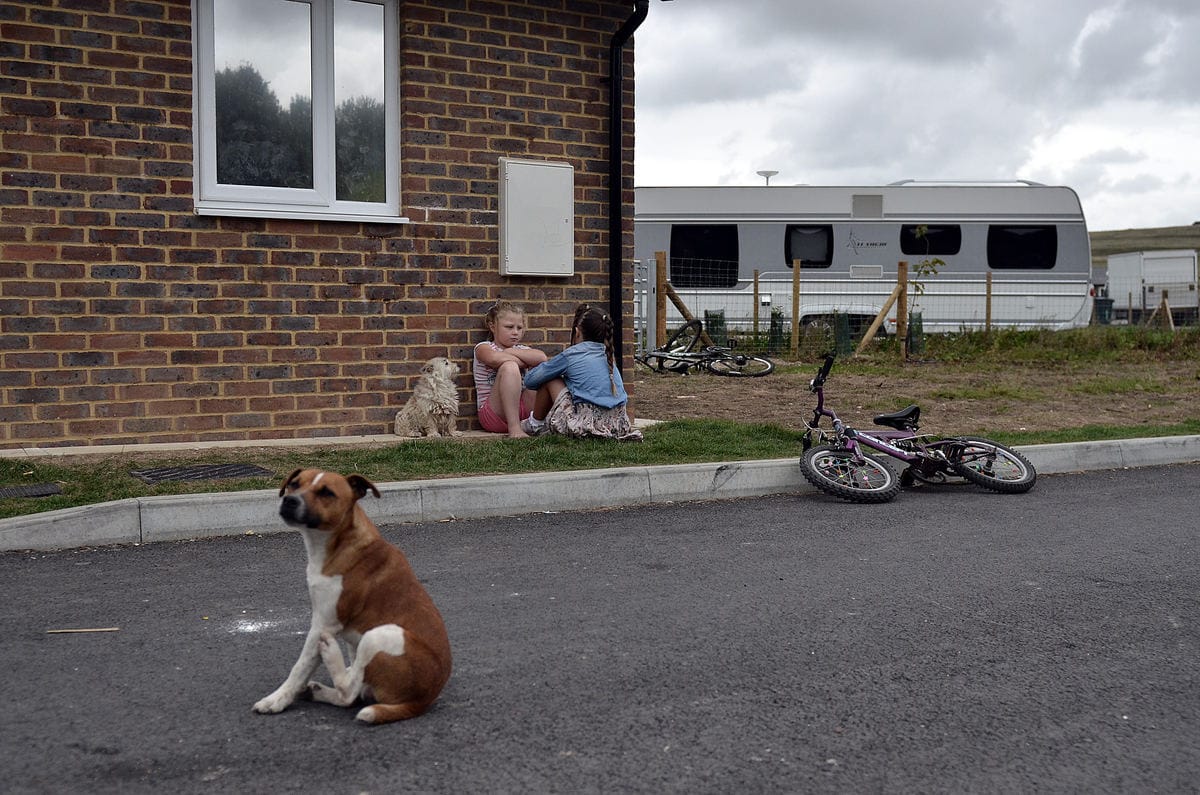The ‘invisible’ impact of Covid-19 on Gypsies, Roma, and Travellers

By Maxine Betteridge-Moes, MA Media in Development
While many minority communities have been disproportionately impacted by the Covid-19 pandemic in the UK, there is no formal data collection when it comes to the infection and death rate among Britain’s Gypsies, Roma, and Travellers (GRT). As a result, the impact on the highly stigmatised community remains largely unknown and unacknowledged in government. But as the second wave tightens its grip in the UK and across Europe, a Romani journalist is investigating the true cost to his community.
‘It is depressingly predictable that the government would not have thought about the Gypsy, Roma, Traveller community in their response to the coronavirus’ – Jake Bowers, Romani journalist
‘What I’ve learned so far is the invisibility of [our people] within government,’ said Jake Bowers, whose investigation ‘Deadly silence’ was published in Travellers Times in October. ‘It is depressingly predictable that the government would not have thought about the Gypsy, Roma, Traveller community in their response to the coronavirus.’
Bowers’ reporting, along with the advocacy work of various charities, aims to shed light on how the virus has affected these communities, where government policies have fallen short, and what needs to be done to ensure their basic provisions and legal rights.
There are an estimated 600,000 GRT currently living across the UK. These communities are made up of diverse people with different lifestyles and needs, and thus can hardly be considered a homogenous group. Yet, many within the community are especially vulnerable to the coronavirus, as GRT have some of the worst health outcomes and the lowest life expectancy of all ethnic groups in the UK, according to parliamentary reports. But Public Health England’s reports on Covid-19 merges them into the category of ‘any other white background,’ making it difficult to assess the real death toll and infection rate.
Still, the impact has been felt deeply within the community, as Bowers cites the deaths of several prominent leaders including the boxing legend Les Stevens who died on 25 April. Bowers writes that: ‘the effects have left deep scars in the memories and bodies of community members themselves.’
At the outset of the pandemic in March, the government failed to include advice for self-isolation and nomadic living in its initial release of public health guidelines. Media reports at the time revealed that many GRT families were left without access to basic services, including water, sanitation and refuse collection, which the charity Friends, Families, Travellers (FFT) estimated could affect around 3,000 people living on roadside encampments. Others were forcibly evicted, despite a nationwide eviction ban.
After pressure from FFT and other charities, Community Minister Stephen Greenhalgh wrote to local authorities about how they can better support the GRT community during the pandemic to provide basic provisions and establish safe transit or stopping sites. But activists say more needs to be done, and that they are still working with vulnerable communities by providing legal advice regarding evictions, installing water pipes at some caravan sites, and distributing their own resources on Covid-19 in relevant languages.
Alison Blackwood, manager of Southwark Traveller Action Group, successfully advocated for the installation of a water standpipe at a traveller site in Hertfordshire that had no access to running water. The charity is paying the fees for now, but Blackwood fears it could be cut off due to lack of funding if the local council does not install a permanent water supply on the site.
‘It seems ridiculous in a pandemic that [some people] haven’t got running water and the temporary standpipe can be taken away,’ she said, adding that they are working with the council and other groups to find a more long-term solution.
The FFT recently released a legal brief related to evictions from and service provisions to unauthorised encampments which outlines the rights of GRT families in accessing basic amenities. It states that: ‘what was previously a pure discretion for local authorities … has almost risen to the level of obligation during the pandemic.’
Thus, until adequate government support and interventions are introduced, many GRT communities have been left to fend for themselves. But Bowers says many inspiring stories such as fundraisers for local hospitals have been largely left out of the mainstream media. ‘People have really come together to support the public health system in this country … which is really powerful and really positive. That hasn’t been picked up by the media at all.’
Bowers is currently working on part two of his investigation, focusing on the experiences of Roma people during the pandemic. It will be published in the Travellers Times next month.
‘The community’s response is the same as it always is, which is that we don’t expect anybody to think of us and you can see that in our self-reliance,’ he said. ‘It’s bleak and hopeful.’
Photo Caption: Public Health England merges Gypsies, Roma and Travellers into the category of ‘any other white background’, making it difficult to assess the real death toll and infection rate of Covid-19 within the community. Credit: Friends, Families, Travellers.




